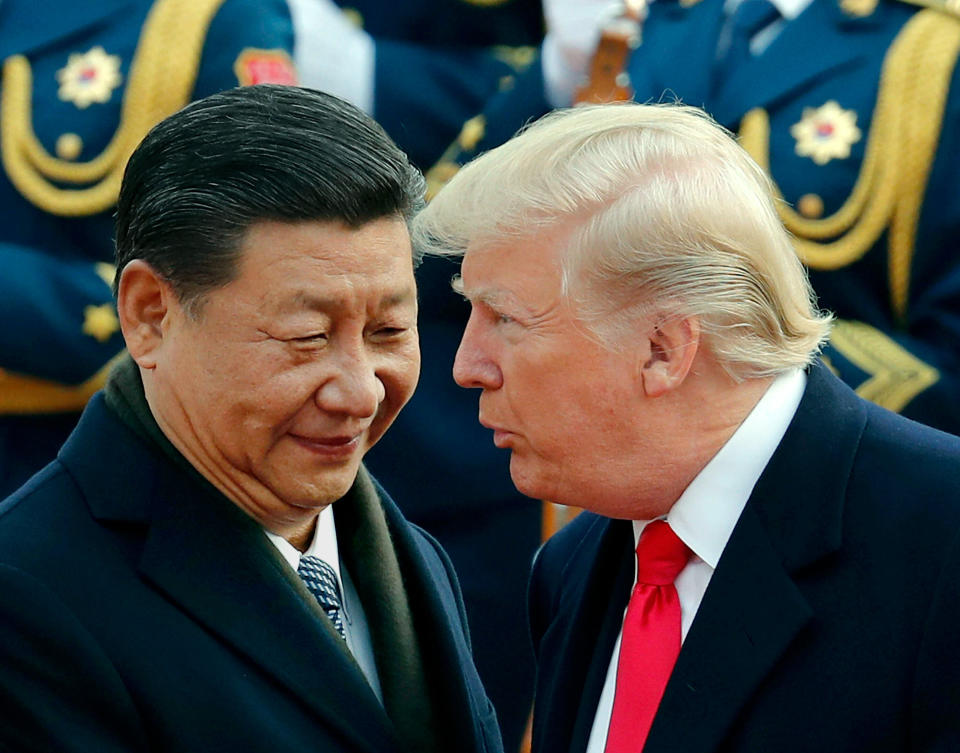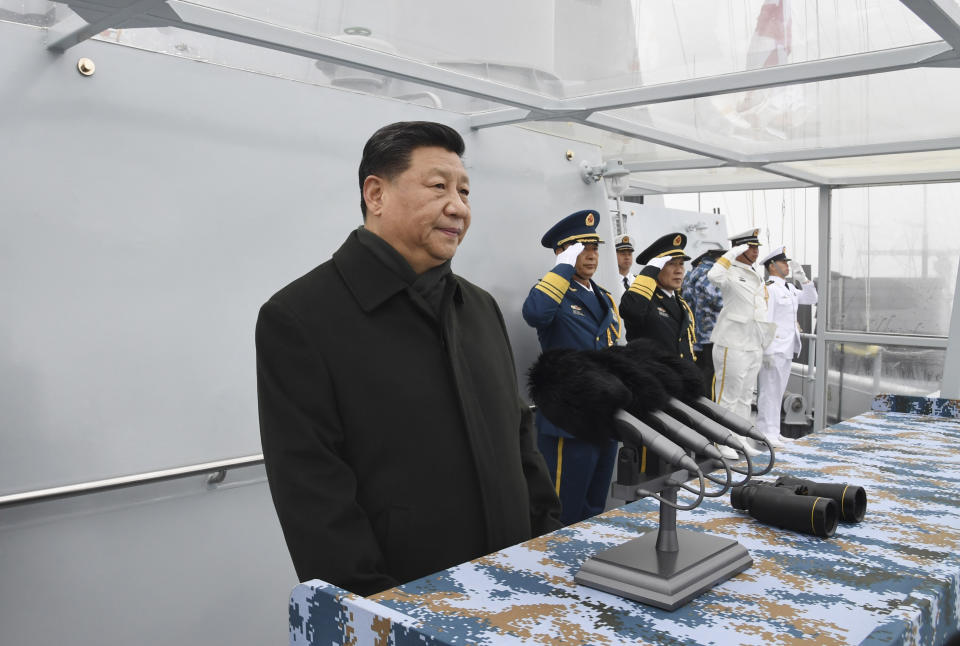US - China trade is just part of the 'most important geopolitical conflict of our time'
Is the U.S.-China trade war rooted in economics, or something far more ominous and long-lasting?
On its face, the escalating tariff battle that’s pitted the world’s two most powerful economies against one another are about fair trade. China accounts for the lion’s share of the U.S.’s yawning trade deficit, which widened in March to $50 billion.
However, a growing number of economists warn that the trade dispute is commingled with nettlesome geopolitical issues that make it difficult, if not impossible, to separate economics from the multiple fronts on which both the U.S. and China are at odds.
“It would be a mistake to deal with the trade war in isolation. Whether the U.S. likes it or not, the economic competition with China is a critical battlefield in a much larger geopolitical struggle for global primacy in the 21st century,” John Hannah, a senior counselor at Foundation for Defense of Democracies, a national security and foreign policy think tank, told Yahoo Finance this week.
Consider the lengthy list of Sino-American pain points: the fight to block Huawei’s technology worldwide; Territorial disputes in the South China Sea that have become a proxy for global military supremacy; China’s (unsuccessful) role in containing North Korea’s nuclear ambitions; and Beijing’s controversial $900 billion Silk Road Initiative.
Taken together, those festering flashpoints will make it hard for both warring parties to lay down their swords on trade, as the U.S. and China jockey for position in other areas.

While Wall Street still expects a trade accord at some point this year, “tensions between the two countries are broadening out to include economic, military and ideological dimensions,” said Thomas E. Donilon, chairman of the BlackRock Investment Institute and former National Security Advisor to President Barack Obama.
“We see these tensions as structural and long-lasting,” Donilon added, in a recent analysis of geopolitical risks to BlackRock clients.
For those reasons, negotiations may drag on for far longer than markets currently expect, and may not be resolved to investors’ satisfaction, some argue.
“It’s long past time for Washington to fight back against a Chinese economic juggernaut built on theft, espionage, coercion, and massive state subsidies,” Hannah added.
‘Most important geopolitical conflict of our time’
Less than a month after the U.S. fired the latest salvo — a tariff hike on $200 billion worth of Chinese goods — economists are warning about the global spillover. Equity markets are in turmoil, and the stock prices of U.S. multinationals have swooned as tensions escalate.
Crude oil (CL=F) ended its worst week of the year on Friday, as fears grew that a prolonged trade war could undermine growth. Meanwhile, signs have emerged that both U.S. and Chinese consumers will bear the brunt of higher import prices.
Warning that “increased tensions may impact markets severely,” Bank of America-Merrill Lynch pointed to the U.S.’s Herculean struggle to manage China’s global ascendance, while maintaining its own position as the world’s preeminent superpower.
“The most important point to grasp is whether the trade war is just about trade, or instead we are just witnessing the early innings of the most important geopolitical conflict of our time,” the bank’s economists wrote in a recent note to clients.

The U.S.-China conflict is taking place against a backdrop of a decelerating global economy. And should the trade war hit growth, China stands to lose the most, BofA’s analysis stated.
“China's population is declining irreversibly, while US population growth will continue in the years ahead,” according to the bank.
“On our estimates, even a modest reduction in the rate of Chinese GDP growth from the current levels would prevent China from surpassing the US economically and militarily. In other words, the ongoing trade war could enable the US to remain the hegemonic power for decades,” it added.
Slower growth could also curtail China’s growing military presence abroad, amid its ambitions to spark “a new era of globalization” with its Silk Road action plan.
The initiative aims to inject up to $8 trillion for infrastructure across dozens of countries, which represents a third of global growth and could reshape world trade, according to consulting firm McKinsey.
However, the project has stoked widespread suspicions about Beijing’s true intentions, some of which are being seen as expansionary and geostrategic in nature.
—
Javier is an editor for Yahoo Finance. Follow Javier on Twitter: @TeflonGeek
Read more:
Trump calls on the Fed to cut rates while praising China's 'great' stimulus
Why consumers should expect higher prices for a lot of things this summer
Goldman Sachs: Trump has 'narrow' shot in 'close call' election bid
Read the latest financial and business news from Yahoo Finance
Follow Yahoo Finance on Twitter, Facebook, Instagram, Flipboard, SmartNews, LinkedIn, YouTube, and reddit.

 Yahoo Finance
Yahoo Finance 
